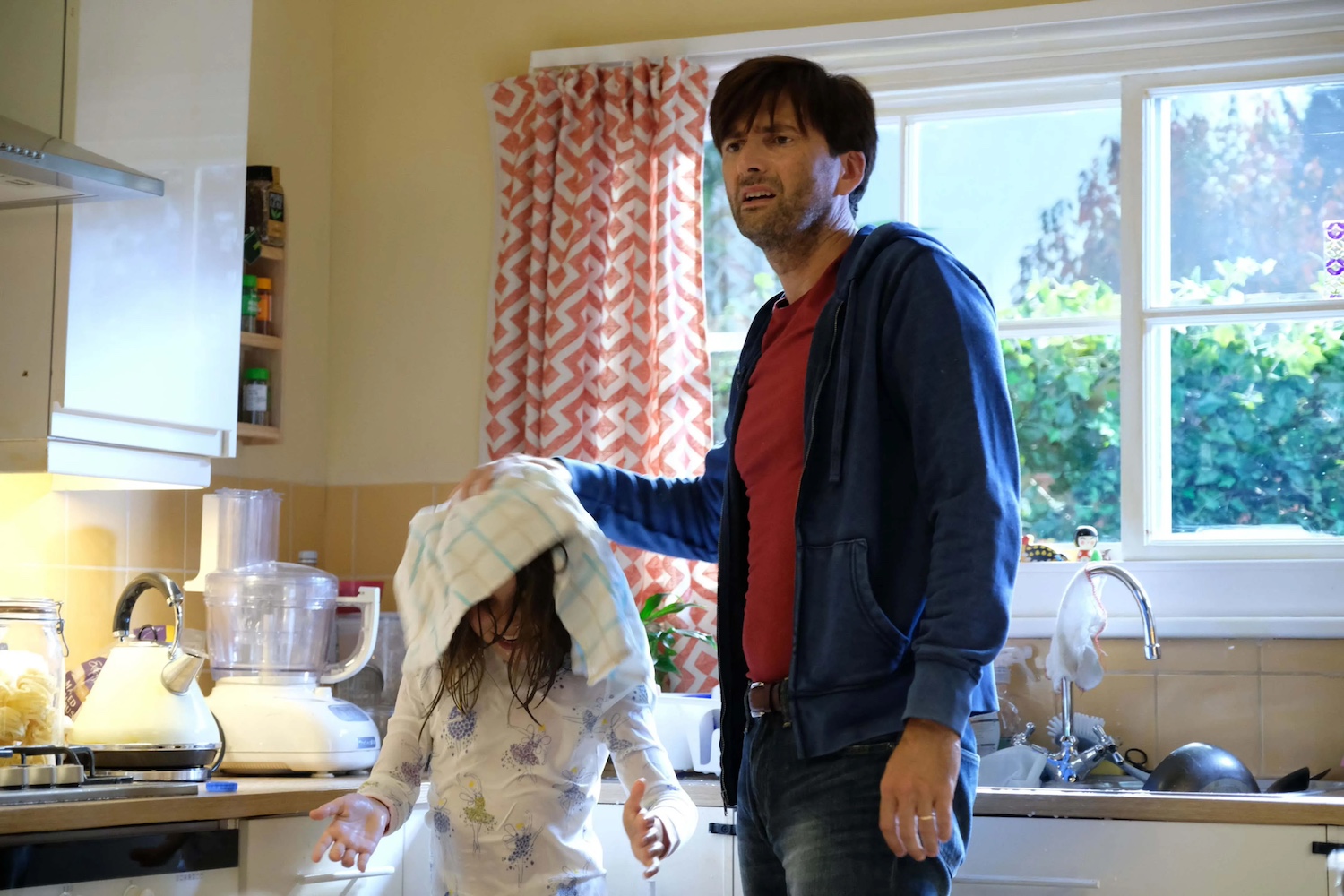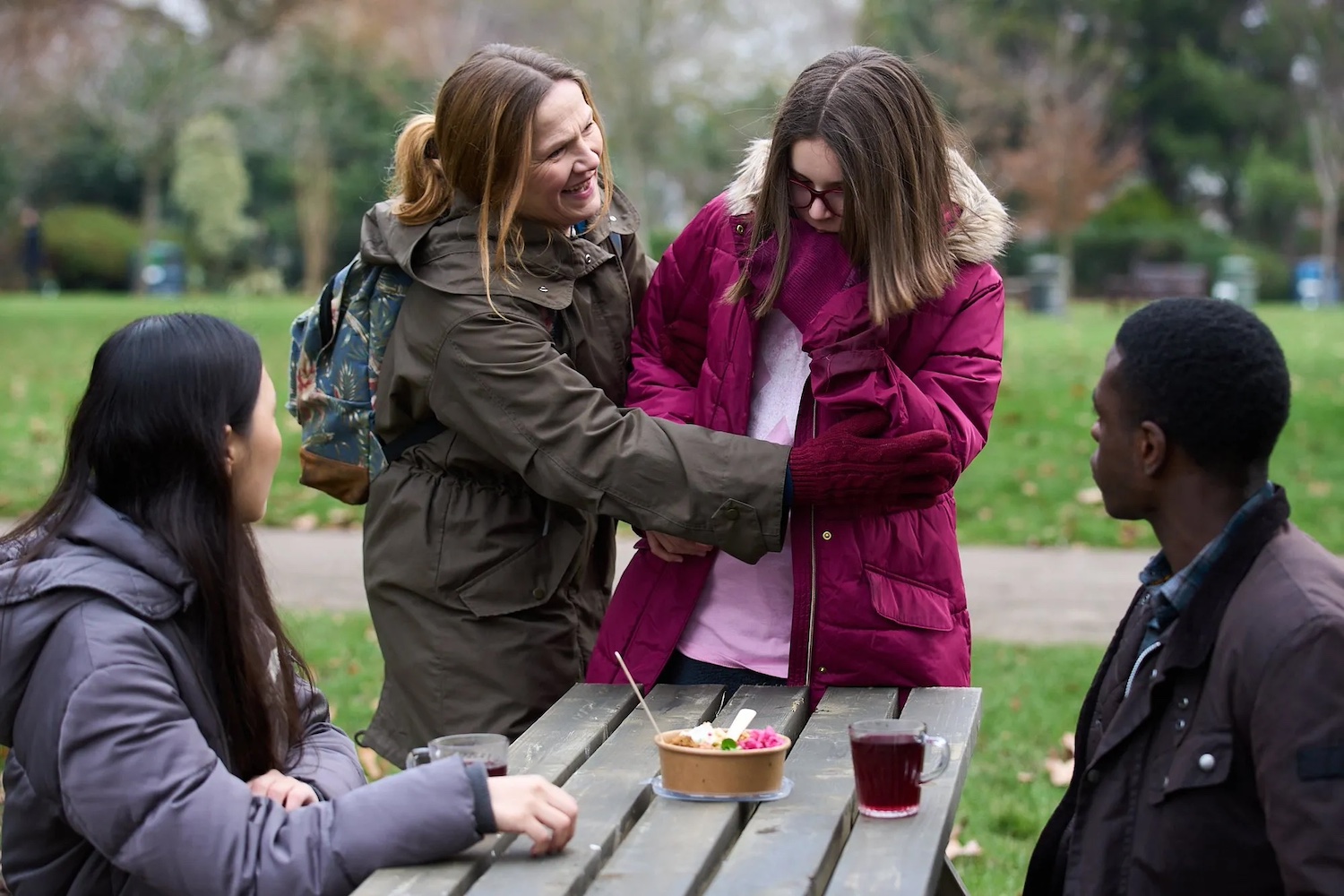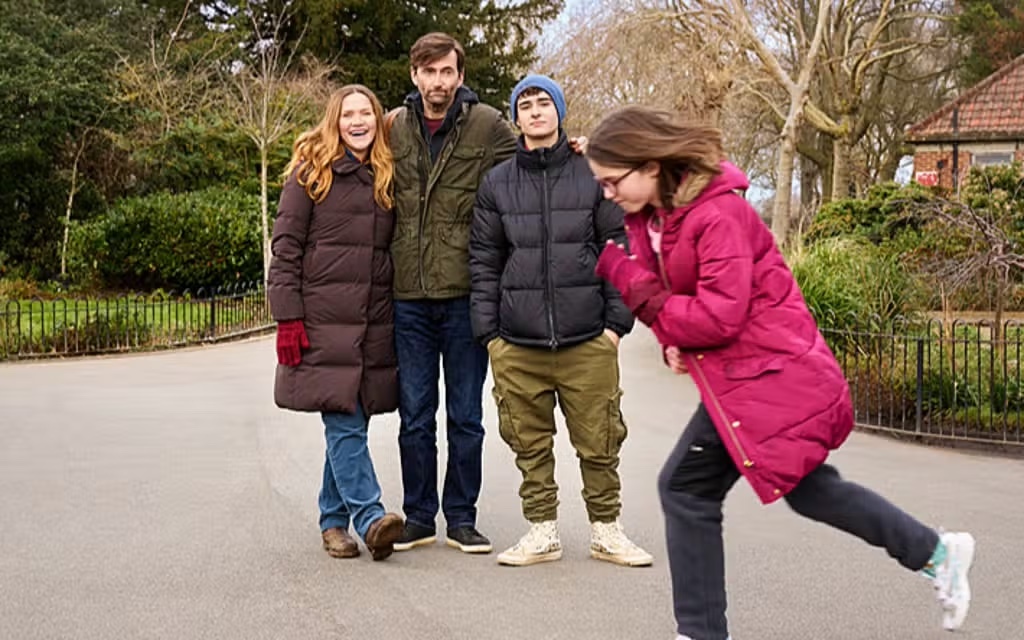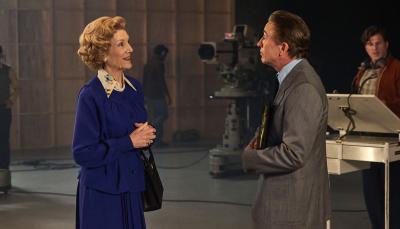'There She Goes' is a Heartbreaking Comedy
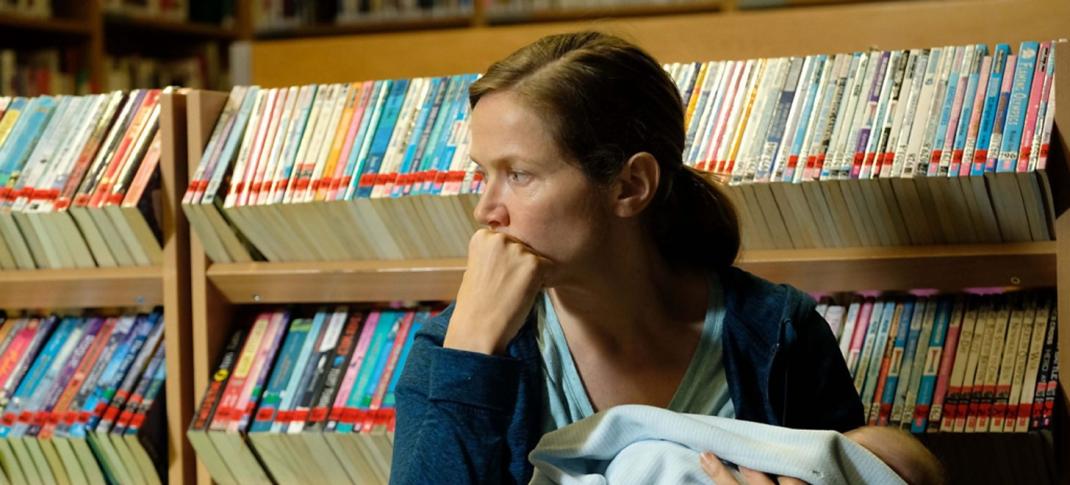
Jessica Hynes (Emily).
© BBC
It’s almost as challenging to describe There She Goes, an extraordinary show, as it is to watch. Full of black humor, anger, and sadness, it is brutally honest about the challenges of parenting a severely learning-disabled child while also being very funny. The husband-wife writing team of Shaun Pye and Sarah Crawford are the parents of a learning-disabled daughter, Joey, and as they say in Britain, sometimes you have to laugh. Pye told the BBC, “Some people might think that comedy is not the appropriate form for this. They’re entitled to their opinion, and that’s fine. But what we’re doing is truthful. If funny things have happened to us, then why shouldn’t we put them on TV?”
I've never read something that covers the struggles of being a parent, whatever those struggles are, with such honesty, such humour and such warmth ... All parents go through dark nights, and all parents go through all kinds of challenges.—Jessica Hynes, BBC
The series initially ran on the BBC from 2018 to 2020, with a final one-episode Season 3 in 2023. The series brings together David Tennant (Litvinenko) and Jessica Hynes (Miss Austen) for the first time since their 2007 Doctor Who days as couple Simon and Emily, a bright, geeky pair with interesting jobs, an enviable Victorian terrace house and a delightful young son Ben (played first by Oliver Gibbs and later as a teenager by Edan Hayhurst).
Quite late in her second pregnancy, Emily is told her baby is too small and not developing correctly, although they won’t know for years what is wrong. I should point out that this isn’t a family vs. the medical establishment drama, and the medical staff, particularly their specialist Dr. Pritchard (Michael Gould), teachers, and social workers, are kind and sympathetic.
From the beginning, something is wrong with their second child, Rosie, and it’s heartbreaking to watch Emily fall into isolation and depression in the early days. She takes Rosie to a mother-baby enrichment program at the library, surrounded by smiling women and alert, responsive babies. Rosie is passive and quiet; she can’t sit up or clap her hands. Emily is a scientist defeated by logic; she can only document her daughter’s behavior and symptoms. Simon, however, is an extrovert whose job seems to consist of talking to his more-or-less platonic friend Helen (Yasmine Akram) in the pub after work. He’s hardly ever home and then complains Rosie won’t call him daddy (mummy was her first word at a year old).
We first meet eleven-year-old Rosie (a brilliant performance by Miley Locke) as Simon is about to take her and Ben to the park on a Saturday morning while Emily enjoys an hour or so to work (or, more likely, play video games). But Rosie lies on the sidewalk and howls. Ben, pretty much resigned to his sister wrecking family plans, rolls his eyes. Simon, who has somehow never learned to drive, summons Emily to drive them to the park, much to her annoyance.
While the drama plays out, their well-meaning neighbor, Chris (Ben Willbond), appears with his picture-perfect daughter the same age as Rosie, a regular reminder of what Simon and Emily are missing. As a sensitive modern man, Chris is frequently appalled by Simon’s black humor regarding Rosie and his inability to remember socially acceptable terms for his daughter’s condition. Simon, however, is probably winding him up some of the time because that’s how he copes.
Rosie is a destructive force of nature needing constant attention. Leave her alone, and she’ll pour milk over her head or destroy household items. Non-verbal, and non-toilet-trained, she refuses to use her AAC (augmentative or alternative communication) device, which uses pictures and symbols to replace speech. She loves the letter X, the FedEx truck, her stuffed toy hippo, bubble baths, Christmas, birthdays, presents, and running (on school sports day, she runs in the wrong direction with great enthusiasm). When happy, she beams and claps her hands, but when angry or frustrated, she howls and scratches to make her point, usually only responding to bribery in the form of small packets of crackers.
She loves her mother; undoubtedly, Emily loves her, as does Simon, but both are exhausted and fearful for her future. However, Simon and Emily’s relationship is the show’s triumph; Tennant and Hynes turn in epic performances. After a rough beginning, they bond, able to admit their pain and, yes, their disappointment, that they wish Emily were “normal.” There’s a heartbreaking scene in which Emily cries, heartbroken that she’ll never see her beloved daughter walk down the aisle, one of many experiences she’ll be denied.
Rosie’s condition is not hereditary, but is that reason enough to consider another baby? Emily, challenged by Simon to develop a list of pros and cons, comes up with only reasons not to have another child. Their relationships with their own parents are beautifully done, particularly Emily’s, John (Philip Jackson), and Cath (Serena Evans). Grandma Cath is a child-whisperer who awes Rosie into acquiescence when they babysit, making a pasta dinner for Rosie, who responds in her usual fashion by sweeping it off the table. Cath tsk-tsks, replaces it, and Rosie obediently eats, has an uneventful bubble bath, and goes to bed.
One of the most frustrating problems with Rosie is that she can’t communicate her needs, leading to misunderstanding, anger, and adverse reactions from other people, particularly other parents. They don’t see her as a challenged child, just one having an inappropriate tantrum. Emily becomes accustomed to removing Rosie from swimming pools, playgrounds, and even, on one notable occasion, the pub quiz. All parents (at least, I hope it’s all of us) have haunting memories of removing a screaming toddler from a social occasion, pretending not to notice the audible comments and expressions of disapproval that follow them out.
A previously favorite activity may suddenly cause an outburst of rage and frustration, as Simon discovers when the swimming pool falls out of favor, and he has to stand in front of a large window outside the gym while Rosie chortles and coos with excitement. Only a few feet away, a woman on a running machine glares at an embarrassed Simon. There’s also the long-anticipated holiday with their extended family at a favorite resort, which Rosie has loved until now. This time, Simon and Emily return home early, exhausted after a sleepless night, when Rosie turns the bedroom lights on and off.
When puberty roars in like a lion, Simon and Emily are terrified as Rosie’s physical attacks and destruction escalate. They receive an embarrassing visit from the police after someone reports a kidnapping was taking place. (Rosie didn’t want to go home.) The school sends a social worker to visit after a teacher finds unexplained bruising on Rosie, but to the family’s relief, she listens and offers support, including the respite care they so badly need.
But they are forced to think about the long-term future for them all. There’s a lovely moment when Ben, now a teenager, tells his parents he’ll look after Rosie when he’s an adult. Can the family, or the series itself, possibly have a happy ending?
When Emily and Simon are called to Dr. Pritchard’s office, they are thrilled and relieved to find that molecular genetic testing has revealed Rosie suffers from the rare DYRK1A Syndrome. They have almost certainly blamed themselves for her condition, and it’s a relief to know they did nothing wrong. The syndrome cannot be cured, but research is being carried out worldwide, and Emily and Simon feel they are no longer alone. When we see Emily interacting with other DYRK1A families and children, it’s not the end of the family’s story but the beginning of better times.
All episodes of There She Goes are streaming on BritBox.

